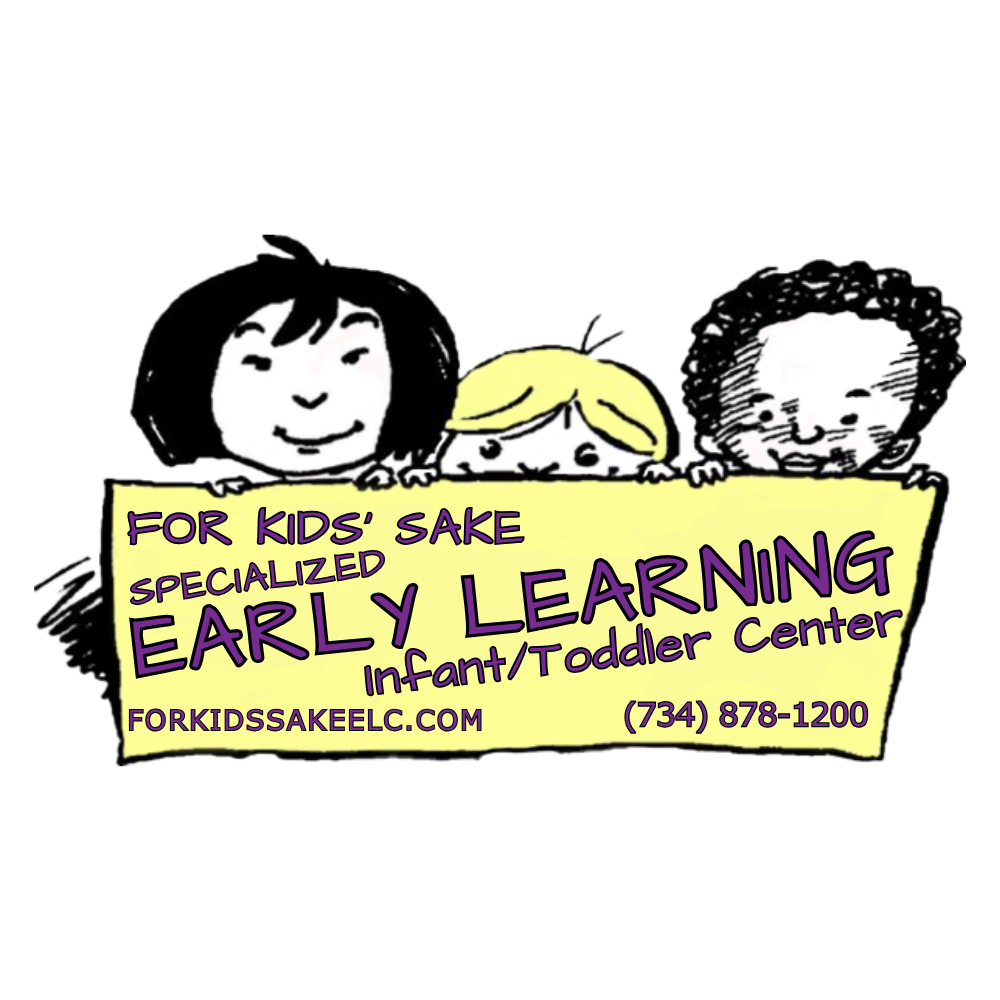For Kid’s Sake Early Learning Center espouses a play-based approach to curriculum. This philosophy encompasses three aspects of learning: environments, interactions, and experiences.
Our play-based approach is based on observations that children learn by doing. Children learn and recall more information if they discover facts and answers for themselves. For example, a teacher could tell a child that 2 plus 2 equals 4. If the child repeats this fact, he or she will learn it through rote memorization. But if a teacher provides counting materials and encourages children to group different quantities of items, count them, guess how many they will add up to, and manipulate items and numbers for themselves, children will learn not only that 2 plus 2 equals 4, but they will also have acquired strategies for solving other addition and subtraction problems. This reinforces feelings of competence and confidence to approach new tasks.
Our play environments are designed to encourage experimentation with real objects and provide meaningful context. We stock our classrooms with developmentally appropriate materials that challenge children’s abilities and invite them to explore. We set up distinct areas to facilitate particular kinds of play—an art area for messy projects, and a quiet, cozy nook for reading—but we also encourage children to make connections across interest areas. So we are pleased when a child who is building in the block area brings over a book about bridges for reference or includes play food in the kitchen he has just built.
The teacher’s role in a play-based classroom is facilitator or coach. Our plans & activities are designed to encourage children to dive into play while at other times they will wait for directions. Teachers plan for a range of developmental abilities and strive to provide varying levels of challenge to meet children’s individual needs. Teachers also provide scripts for children to use when negotiating about materials and space. They redirect play that becomes unfocused or destructive.
Our approach to learning can also be described as a constructivist approach. Children are constantly building on previous knowledge and refining what they know with new experiences. This method emphasizes process over product, promotes higher-level problem-solving skills, and encourages children to plan, reflect, and develop self-reliance and initiative. Teachers scaffold learning by challenging children to explore concepts that are just beyond their comfort zones, providing feedback and resources when children become frustrated, and posing questions and problems that lead children to new concepts.
Core Curriculum
Our activities and materials vary from program to program depending on the developmental needs of the individuals in each group. But some aspects of our curriculum apply to all age groups and every center:
- Children go outside every day, weather permitting.
- Children listen to stories and read to themselves every day.
- Children sing and listen to music every day.
- Children eat meals & snacks in a family-style setting together every day.
- Children participate in the “work” aspects of group life: planning, setting up, and cleaning up activities; and recycling.
- Children care for living things: plants, gardens, and animals, as is developmentally appropriate.
